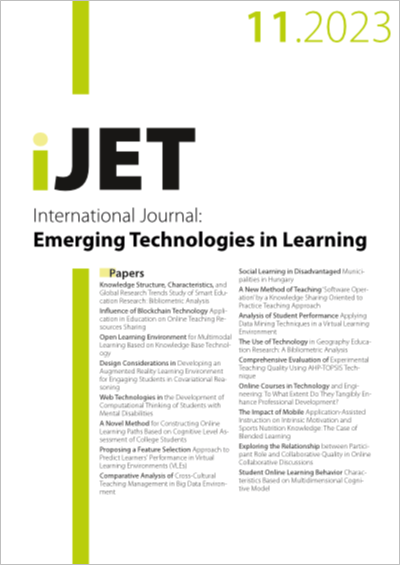Social Learning in Disadvantaged Municipalities in Hungary
DOI:
https://doi.org/10.3991/ijet.v18i11.39347Keywords:
social learning, human potential, rural area, social enterpriseAbstract
The aim of the study is to measure the human resource potential of the North-Hungarian region in Hungary by developing and estimating a human development index at the level of municipalities. The results of the calculations will be produced for the last 3 census years (1990, 2001, 2011), showing which municipalities have the strongest human resource potential. In disadvantaged municipalities with low human development, there is an increased need for a social learning process. The existence of social enterprises can further strengthen the population retention capacity of a municipality, especially when targeted improvements and innovations are created. The study describes a successful social enterprise in a deprived municipality.
Downloads
Published
How to Cite
Issue
Section
License
Copyright (c) 2023 Katalin Liptak

This work is licensed under a Creative Commons Attribution 4.0 International License.


